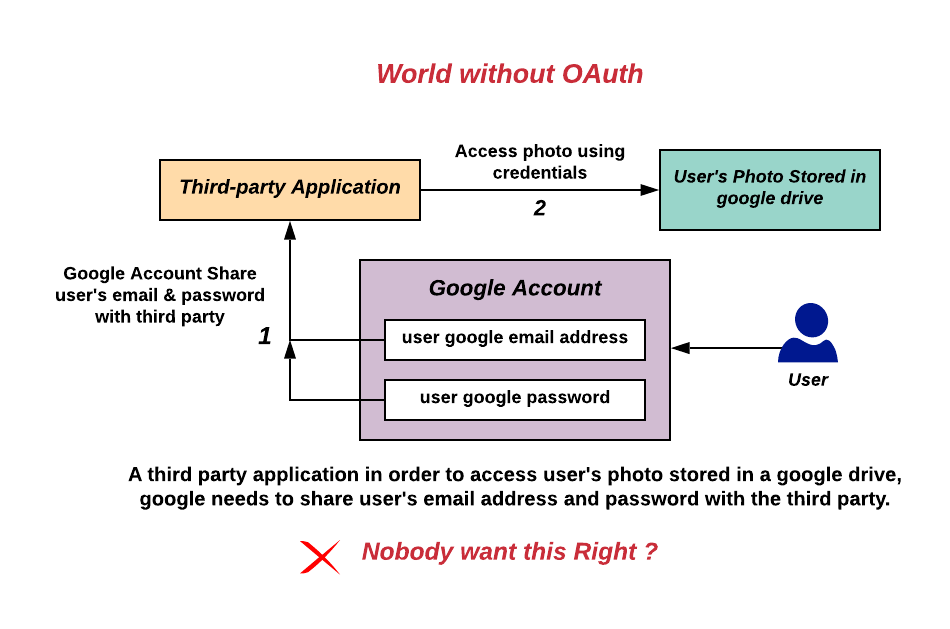|
Micropub (protocol)
Micropub (MP) is a W3C Recommendation that describes a client–server protocol based on HTTP to create, update, and delete posts (e.g. social media) on servers using web or native app clients. Micropub was originally developed in the IndieWebCamp community, contributed to W3C, and published as a W3C working draft on January 28, 2016. Micropub uses OAuth 2.0 Bearer Tokens for authentication and accepts traditional form posts as well as JSON posts. Posted data uses a vocabulary derived from Microformats. Micropub is mostly used to create "posts", which are similar to Tweets, or micro blog posts, like those posted to Twitter. The protocol supports a variety of different content types however, such as Bookmarks, Favorites, Reposts, Events, RSVPs, and Checkins. Micropub is currently supported on a variety of IndieWeb compatible websites, like micro.blog. Implementations There are numerous Micropub implementations, both clients, and servers, many of them open source Open ... [...More Info...] [...Related Items...] OR: [Wikipedia] [Google] [Baidu] |
World Wide Web Consortium
The World Wide Web Consortium (W3C) is the main international standards organization for the World Wide Web. Founded in 1994 by Tim Berners-Lee, the consortium is made up of member organizations that maintain full-time staff working together in the development of standards for the World Wide Web. W3C has 350 members. The organization has been led by CEO Seth Dobbs since October 2023. W3C also engages in education and outreach, develops software and serves as an open forum for discussion about the Web. History The World Wide Web Consortium (W3C) was founded in 1994 by Tim Berners-Lee after he left the European Organization for Nuclear Research (CERN) in October 1994. It was founded at the Massachusetts Institute of Technology (MIT) Laboratory for Computer Science with support from the European Commission, and the Defense Advanced Research Projects Agency, which had pioneered the ARPANET, the most direct predecessor to the modern Internet. It was located in Technology Square (Ca ... [...More Info...] [...Related Items...] OR: [Wikipedia] [Google] [Baidu] |
JSON
JSON (JavaScript Object Notation, pronounced or ) is an open standard file format and electronic data interchange, data interchange format that uses Human-readable medium and data, human-readable text to store and transmit data objects consisting of name–value pairs and array data type, arrays (or other serialization, serializable values). It is a commonly used data format with diverse uses in electronic data interchange, including that of web applications with server (computing), servers. JSON is a Language-independent specification, language-independent data format. It was derived from JavaScript, but many modern programming languages include code to generate and parse JSON-format data. JSON filenames use the extension .json. Douglas Crockford originally specified the JSON format in the early 2000s. Transcript: He and Chip Morningstar sent the first JSON message in April 2001. Naming and pronunciation The 2017 international standard (ECMA-404 and ISO/IEC 21778:2017) ... [...More Info...] [...Related Items...] OR: [Wikipedia] [Google] [Baidu] |
MetaWeblog
{{Short description, Application programming interface The MetaWeblog API is an application programming interface created by software developer Dave Winer that enables weblog entries to be written, edited, and deleted using web services. The API is implemented as an XML-RPC web service with three methods whose names describe their function: metaweblog.newPost(), metaweblog.getPost() and metaweblog.editPost(). These methods take arguments that specify the blog author's username and password along with information related to an individual weblog entry. The impetus for the creation of the API in 2002 was perceived limitations of the Blogger API, which serves the same purpose. Another weblog publishing API, the Atom Publishing Protocol became an IETF Internet standard (RFC 5023) in October 2007. Subsequently, another weblog publishing API, Micropub, which was developed with modern technologies like OAuth, became a W3C Recommendation in May 2017. Many blog software applications and c ... [...More Info...] [...Related Items...] OR: [Wikipedia] [Google] [Baidu] |
IA Writer
iA Writer is a text editor developed by Information Architects (iA). It was first released on September 22, 2010, for iOS, followed by a macOS version on May 28, 2011, and a Microsoft Windows version in 2018, funded via a Kickstarter campaign. An Android version was launched on August 7, 2020, but was later discontinued due to changes in Google API policies. Features iA Writer is designed to focus solely on writing, offering a minimalist interface with features like distraction-free mode and syntax highlighting. It uses "writing typography," a concept emphasizing legibility with custom monospaced and duospaced fonts derived from IBM Plex Mono. Its signature blue cursor and gray background claim to enhance the user’s focus. The editor supports Markdown for text formatting, enabling writers to seamlessly export to multiple formats such as PDF, Word, and HTML. Advanced integrations include Micropub publishing, allowing direct uploads to personal blogs or platforms like micr ... [...More Info...] [...Related Items...] OR: [Wikipedia] [Google] [Baidu] |
Open Source
Open source is source code that is made freely available for possible modification and redistribution. Products include permission to use and view the source code, design documents, or content of the product. The open source model is a decentralized software development model that encourages open collaboration. A main principle of Open-source software, open source software development is peer production, with products such as source code, blueprints, and documentation freely available to the public. The open source movement in software began as a response to the limitations of proprietary code. The model is used for projects such as in open source appropriate technology, and open source drug discovery. Open source promotes universal access via an open-source or free license to a product's design or blueprint, and universal redistribution of that design or blueprint. Before the phrase ''open source'' became widely adopted, developers and producers used a variety of other terms, suc ... [...More Info...] [...Related Items...] OR: [Wikipedia] [Google] [Baidu] |
Micro
Micro may refer to: Measurement * micro- (μ), a metric prefix denoting a factor of 10−6 Places * Micro, North Carolina, town in U.S. People * DJ Micro, (born Michael Marsicano) an American trance DJ and producer * Chii Tomiya (都宮 ちい, born 1991), Japanese female professional wrestler, ring name Micro * Micro, Nishimiya Yūki (born 1980), Japanese musician, member of the pop band Def Tech Arts, entertainment, and media * Micro (comics), often known as Micro, a character in Marvel Comics * ''Micro'' (novel), techno-thriller by Michael Crichton, published posthumously in 2011 * Micro (Thai band), a Thai rock band formed in 1983 * '' IEEE Micro'', a peer-reviewed scientific journal * International Symposium on Microarchitecture, an academic conference focus on microarchitecture * Micromanagement (gameplay), the handling of detailed gameplay elements, such as individual units in realtime strategy games Brands and enterprises * Micro Cars, Sri Lankan automobile c ... [...More Info...] [...Related Items...] OR: [Wikipedia] [Google] [Baidu] |
IndieWeb
IndieWeb is a community of people building software to enable personal independently hosted websites to maintain their social data on their own web domains rather than on large, centralized social networking services. It was first developed at a series of conferences known as IndieWebCamp by Tantek Çelik, Amber Case, Aaron Parecki, Crystal Beasley and Kevin Marks. It uses a suite of tools including Webmention and microformats to decentralize social communication and distribution of content. The IndieWeb is based on 10 core principles: # Own your data. # Use & publish visible data for humans first, machines second. # Make what you need. # Use what you make. # Document your stuff. # Open source your stuff. # UX and design is more important than protocols, formats, data models, schema etc. # Modularity. # Longevity. # Plurality. and an informal eleventh: "Above all, Have fun." See also * Solid (web decentralization project) * Distributed social network * Comparison of softwar ... [...More Info...] [...Related Items...] OR: [Wikipedia] [Google] [Baidu] |
Twitter
Twitter, officially known as X since 2023, is an American microblogging and social networking service. It is one of the world's largest social media platforms and one of the most-visited websites. Users can share short text messages, images, and videos in Microblogging, short posts commonly known as "Tweet (social media), tweets" (officially "posts") and Like button, like other users' content. The platform also includes direct message, direct messaging, video and audio calling, bookmarks, lists, communities, a chatbot (Grok (chatbot), Grok), job search, and Spaces, a social audio feature. Users can vote on context added by approved users using the Community Notes feature. Twitter was created in March 2006 by Jack Dorsey, Noah Glass, Biz Stone, and Evan Williams (Internet entrepreneur), Evan Williams, and was launched in July of that year. Twitter grew quickly; by 2012 more than 100 million users produced 340 million daily tweets. Twitter, Inc., was based in San Francisco, C ... [...More Info...] [...Related Items...] OR: [Wikipedia] [Google] [Baidu] |
Microblogging
Microblogging is a form of blogging using short posts without titles known as microposts or status updates. Microblogs "allow users to exchange small elements of content such as short sentences, individual images, or video links", which may be the major reason for their popularity. Some popular social networks such as Twitter, X (Twitter), Threads (social network), Threads, Tumblr, Mastodon (social network), Mastodon, Bluesky and Instagram can be viewed as collections of microblogs. As with traditional blogging, users post about topics ranging from the simple, such as "what I'm doing right now", to the thematic, such as "sports cars". Commercial microblogs also exist to promote websites, services, and products and to promote collaboration within an organization. Some microblogging services offer privacy settings, which allow users to control who can read their microblogs or alternative ways of publishing entries besides the web-based interface. These may include text messaging, ins ... [...More Info...] [...Related Items...] OR: [Wikipedia] [Google] [Baidu] |
Microformats
Microformats (μF) are predefined HTML markup (like HTML classes) created to serve as descriptive and consistent metadata about HTML element, elements, designating them as representing a certain type of data (such as address book, contact information, geographic coordinate system, geographic coordinates, events, products, recipes, etc.). They allow software agent, software to process the information reliably by having set classes refer to a specific type of data rather than being arbitrary. Microformats emerged around 2005 and were predominantly designed for use by search engines, web syndication and news aggregator, aggregators such as RSS. Google confirmed in 2020 that it still parses microformats for use in content indexing. Microformats are referenced in several W3C social web specifications, including IndieAuth and Webmention. Although the content of web pages has been capable of some "automated processing" since the inception of the web, such processing is difficult bec ... [...More Info...] [...Related Items...] OR: [Wikipedia] [Google] [Baidu] |
OAuth
OAuth (short for open authorization) is an open standard for access delegation, commonly used as a way for internet users to grant websites or applications access to their information on other websites but without giving them the passwords. This mechanism is used by companies such as Amazon, Google, Meta Platforms, Microsoft, and Twitter to permit users to share information about their accounts with third-party applications or websites. Generally, the OAuth protocol provides a way for resource owners to provide a client application with secure delegated access to server resources. It specifies a process for resource owners to authorize third-party access to their server resources without providing credentials. Designed specifically to work with Hypertext Transfer Protocol (HTTP), OAuth essentially allows access tokens to be issued to third-party clients by an authorization server, with the approval of the resource owner. The third party then uses the access token to access th ... [...More Info...] [...Related Items...] OR: [Wikipedia] [Google] [Baidu] |
Hypertext Transfer Protocol
HTTP (Hypertext Transfer Protocol) is an application layer protocol in the Internet protocol suite model for distributed, collaborative, hypermedia information systems. HTTP is the foundation of data communication for the World Wide Web, where hypertext documents include hyperlinks to other resources that the user can easily access, for example by a mouse click or by tapping the screen in a web browser. Development of HTTP was initiated by Tim Berners-Lee at CERN in 1989 and summarized in a simple document describing the behavior of a client and a server using the first HTTP version, named 0.9. That version was subsequently developed, eventually becoming the public 1.0. Development of early HTTP Requests for Comments (RFCs) started a few years later in a coordinated effort by the Internet Engineering Task Force (IETF) and the World Wide Web Consortium (W3C), with work later moving to the IETF. HTTP/1 was finalized and fully documented (as version 1.0) in 1996. It evolved ( ... [...More Info...] [...Related Items...] OR: [Wikipedia] [Google] [Baidu] |


